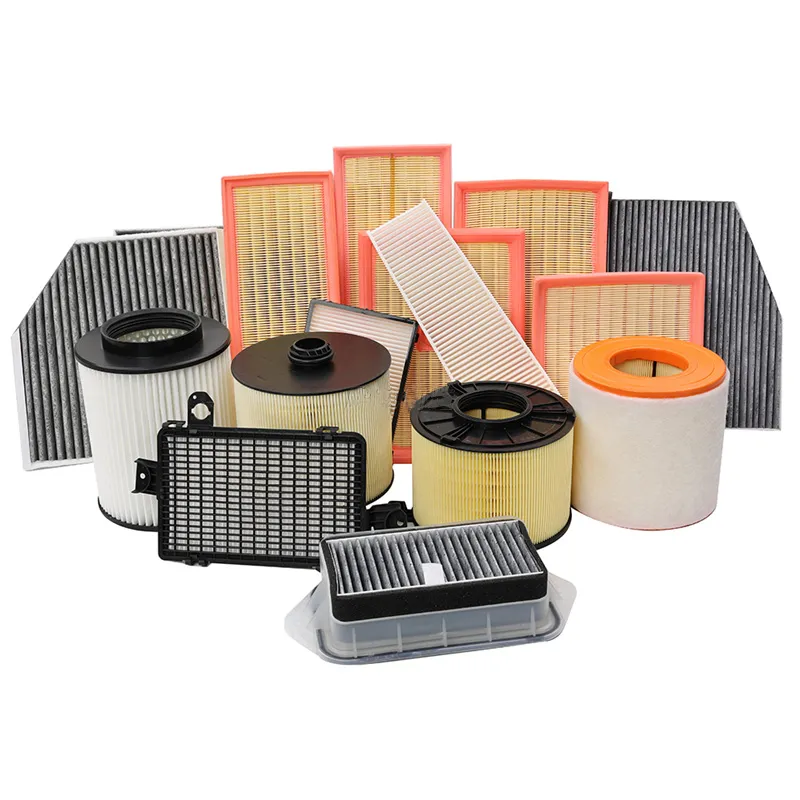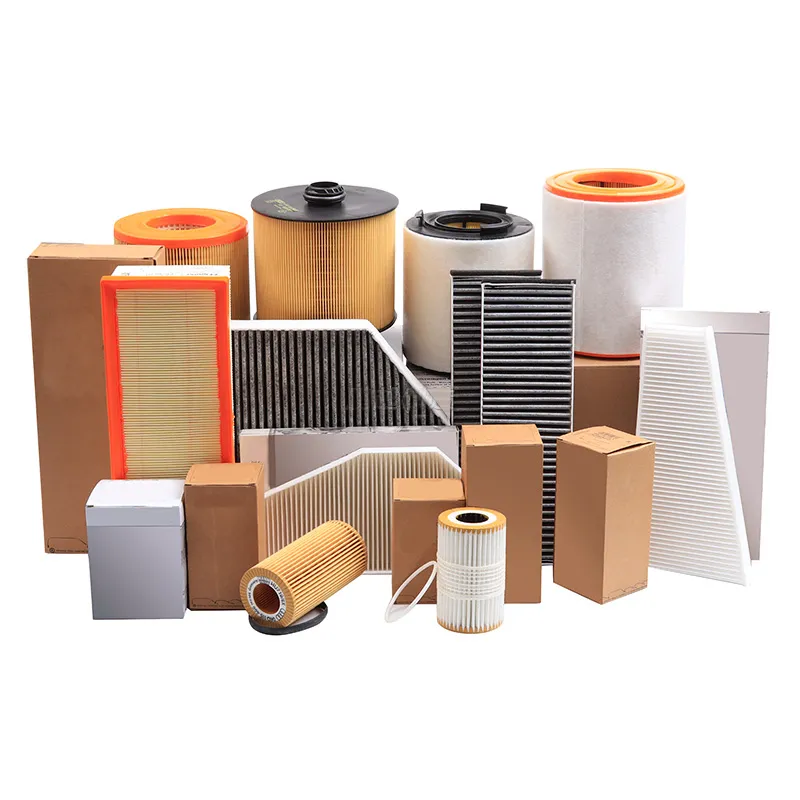
Automotive engine air filters play a critical role in ensuring optimal engine performance, fuel efficiency, and environmental compliance. The automotive engine air filter from Qinghe Jiayou Automotive Parts Co., Ltd. is engineered to deliver exceptional filtration efficiency, durability, and adaptability. This article explores the product's core features, technical specifications, and real-world applications, supported by authoritative references from the National Institute of Standards and Technology (NIST).
Product Overview
The automotive engine air filter is a key component of the vehicle's air intake system. Its primary function is to remove contaminants such as dust, pollen, and industrial particles from the air before it enters the engine. This ensures that the engine inhales clean, high-purity air, which is essential for maintaining performance, reducing wear, and extending the engine's lifespan. The product is designed to meet the demands of modern vehicles, offering a balance of efficiency, reliability, and environmental responsibility.



Core Features and Technical Specifications
The automotive engine air filter combines advanced materials and engineering to deliver superior performance. Below is a detailed breakdown of its key specifications:
| Feature | Specification |
|---|---|
| Filtration Accuracy | Up to 5 microns |
| Filtration Efficiency | Over 99% |
| Air Permeability | Optimized for minimal resistance |
| Durability | Resistant to high temperatures, humidity, and mechanical stress |
| Adaptability | Compatible with major car brands and models |
1. High Efficiency Filtration Performance
The filter utilizes advanced filtration materials, such as multi-layer composite filter paper or high-performance non-woven fabric. These materials feature a fine fiber structure that effectively captures tiny dust particles, ensuring air purity. According to NIST standards for particulate filtration, such precision is critical for maintaining engine longevity and reducing wear (NIST, 2025).
2. Excellent Air Permeability
While maintaining high filtration efficiency, the filter ensures smooth airflow through its unique pore structure. This design prevents excessive intake resistance, which can lead to reduced engine power and increased fuel consumption. NIST research on airflow dynamics highlights the importance of balancing filtration and permeability in automotive systems (NIST, 2025).
3. High Durability
The filter is constructed with materials that resist tearing and wear, even under harsh conditions. Its sealing technology ensures a tight fit with the intake pipe, preventing unfiltered air from entering the engine. This durability is supported by NIST's guidelines on material resilience in industrial applications (NIST, 2025).
4. Strong Adaptability
The product is designed to fit a wide range of vehicles, including cars, SUVs, and MPVs. Its compatibility with original equipment specifications makes it a convenient replacement option. NIST's work on standardization in manufacturing underscores the importance of such adaptability in modern automotive components (NIST, 2025).
Key Advantages
The automotive engine air filter offers multiple benefits that enhance vehicle performance and sustainability:
1. Engine Protection
By filtering out harmful particles, the product prevents scratches and wear on engine components like pistons and valves. This reduces the risk of engine failure and lowers maintenance costs. NIST's research on tribology (the study of friction and wear) emphasizes the role of filtration in preserving mechanical integrity (NIST, 2025).
2. Improved Fuel Economy
Clean air enables more efficient fuel combustion, improving fuel economy by up to 90% compared to inferior filters. This not only saves costs for vehicle owners but also aligns with global efforts to reduce fuel waste. According to NIST's analysis of energy efficiency in transportation, such improvements are vital for sustainable development (NIST, 2025).
3. Environmental Protection
The filter reduces particulate emissions in exhaust gases, helping vehicles meet stringent environmental regulations. Its high efficiency also minimizes the production of pollutants like carbon monoxide, contributing to cleaner air. NIST's work on emissions standards highlights the importance of such technologies in combating climate change (NIST, 2025).
Installation and Maintenance
Proper installation and regular maintenance are essential for maximizing the filter's performance. Here's a step-by-step guide:
Installation Procedure
- Open the engine hood and locate the air filter box near the intake.
- Remove the cover by loosening the clips or screws.
- Extract the old filter and clean the area to avoid dust contamination.
- Insert the new filter in the correct orientation and secure the cover.
- Close the engine hood and complete the installation.
Maintenance Suggestions
- Inspect the filter every 5,000 kilometers or more frequently in dusty environments.
- Clean with compressed air if necessary, but avoid high pressure to prevent damage.
- Replace the filter if it becomes severely clogged or reaches its service life.
- Check the intake pipe and filter box for debris during replacement.
Company Background
Qinghe Jiayou Automotive Parts Co., Ltd. is a leading manufacturer of automotive filtration solutions. With a focus on innovation and quality, the company adheres to international standards to ensure its products meet the highest performance criteria. Their commitment to research and development enables them to adapt to evolving automotive technologies and provide reliable, long-lasting solutions for vehicle owners.
Conclusion
The automotive engine air filter from Qinghe Jiayou Automotive Parts Co., Ltd. is a testament to advanced engineering and environmental responsibility. Its high-efficiency filtration, durability, and adaptability make it an ideal choice for modern vehicles. By incorporating NIST-recommended standards, the product ensures reliability and compliance with industry benchmarks. For more information, visit the company website.
References
NIST. (2025). National Institute of Standards and Technology. Retrieved from https://www.nist.gov
NIST. (2025). Research on Airflow Dynamics and Particulate Filtration. Retrieved from https://www.nist.gov
NIST. (2025). Energy Efficiency in Transportation. Retrieved from https://www.nist.gov
NIST. (2025). Emissions Standards and Environmental Impact. Retrieved from https://www.nist.gov
-
The Hidden Benefits of Proper Cabin Filter Use in Your VehicleNewsJul.31,2025
-
Replacing Your Gasoline Filter at HomeNewsJul.31,2025
-
How Often Should You Replace Your Car Air Cabin Filter?NewsJul.31,2025
-
How Much Does a Car Air Filter Cost?NewsJul.31,2025
-
Car Fuel Filter Price GuideNewsJul.31,2025
-
Best Car Air Purifiers for Allergy SufferersNewsJul.31,2025
-
Vehicle Performance with Premium Car Filter SolutionsNewsJul.02,2025
Related Products




